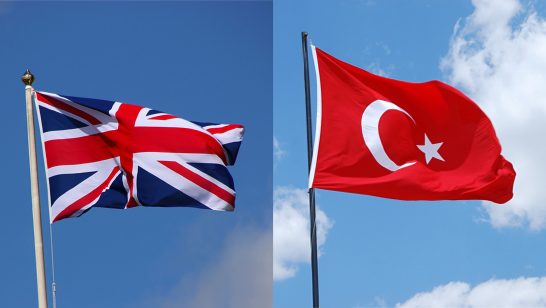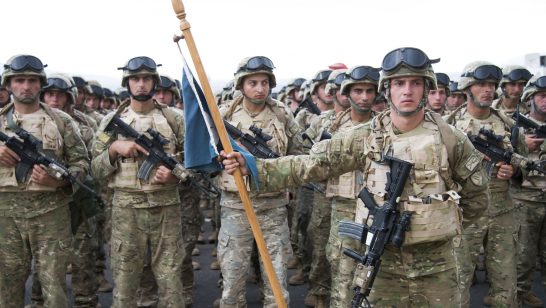
When EU leaders debated ways to resolve the Euro crisis in October 2011, a completely isolated British Prime Minister, David Cameron, blocked all reform proposals, even though the United Kingdom itself does not participate in the common currency. Eventually, French President Nicolas Sarkozy reportedly erupted: “You have lost a good opportunity to shut up.” He went on to tell Cameron: “We are sick of you criticising us and telling us what to do. You say you hate the euro and now you want to interfere in our meetings.”
At the May 20-21 NATO summit in Chicago, the French President could find himself in Cameron’s shoes. On nuclear issues, Paris has become the single biggest obstacle for a reform of NATO’s nuclear weapons policy, even though France is the only Alliance member that has decided to stay out of the Nuclear Planning Group.
A number of reasonable and very modest proposals are on the table to chart the way forward for a revision of NATO’s nuclear posture.
First, NATO needs to bring its declaratory policy in line with UK and US nuclear doctrines. This should be a no-brainer. Nuclear security guarantees are important. They underpin non-proliferation efforts by assuring those members of the nuclear Non-Proliferation Treaty (NPT) that have permanently foregone the nuclear option that they will not become nuclear targets themselves. The United States and the United Kingdom – which contribute all of the nuclear weapons assigned to NATO – have both recently strengthened their own so-called negative security assurances to address this point. In 2010, Washington and London pledged to no longer use, or threaten to use, nuclear weapons against non-nuclear weapon states that comply with their non-proliferation obligations. NATO however, still maintains the option of using nuclear weapons against any attacker and even against a non-nuclear attack. Is this lack of coherence of NATO’s nuclear doctrines a problem? For many yes, but not for Paris, which objects to any change in NATO’s nuclear doctrine because of fears that it might be dragged along.
This is not the only example of French obduracy. NATO, for example, needs to do more on nuclear disarmament. Again, this is a fairly straightforward notion, given that US President Obama since his April 2009 Prague speech has pledged to make nuclear disarmament one of the hallmarks of his administration. The vast majority of Alliance members support Washington in this endeavour. NATO’s unique position in the global nuclear order is obvious: three of the five NPT nuclear weapon states and eight of the 14 states that have nuclear weapons on their territory are NATO members. NATO is the only military alliance that practices “nuclear sharing” under which non-nuclear weapon states like Belgium, Germany, Italy, The Netherlands and Turkey would be expected to deliver ageing, US-owned B61 nuclear bombs to their targets under the wings of planes that in some cases are past their retirement age. The United States has stated clearly that it wants these and other tactical nuclear weapons to be reduced under a future Russian-US arms control accord. Obviously, Allies should be consulted. To ensure such participation, the Alliance at the last summit has created a new committee (something NATO is very good at), the Weapons of Mass Destruction Control and Disarmament Committee (WCDC). But Paris wants this body to be eliminated at the Chicago summit, hoping that this would end discussions on nuclear disarmament in the Alliance once and for all.
Third, NATO needs to continue the political debate on nuclear issues after Chicago. Twenty years after the Cold War, Allies have not yet found a sustainable compromise on NATO’s nuclear posture. Central and Eastern European members continue to be worried that Russia would interpret a hasty withdrawal of US nuclear weapons from Europe as a sign of weakness. Given their history and recent Russian rhetoric, it is more than understandable that these countries want credible reassurances. Yet many of the alternatives to nuclear sharing, such as missile defenses and stronger conventional assurances, raise additional security dilemmas vis-à-vis Moscow. Against this complex background, it is the task of the Deterrence and Defence Posture Review (DDPR) to define a new mix of nuclear and conventional forces as well as missile defences. Balancing these over-lapping and possibly competing demands will take time. The DDPR will not have come up with a sustainable compromise solution when NATO leaders convene in Chicago. Paris, however, is not willing to even contemplate a continuation of the DDPR process. From the beginning, France viewed the DDPR as superfluous and wants all political discussions on NATO’s future deterrence and defence posture to be terminated in Chicago.
So what to do? Obviously, these problems are best addressed in a consensual manner. This is particularly true for declaratory policy, where coherence is key. But if France prevails in Chicago, the Alliance will continue to spend scarce political and financial resources on maintaining an outdated nuclear posture which a number of key allies support only half-heartedly. They realize that nuclear deterrence does not help the Alliance to address current problems, such as securing a transition to a more peaceful Afghanistan, or to tackle future challenges, such as preventing cyber attacks. In addition, the continued presence of US nuclear weapons in Europe will continue to poison relations with Russia and undermine the credibility of Western efforts to convince states like Iran that nuclear weapons are really no longer useful instruments of providing one’s security. Even if leaders in Chicago will not be able to agree on the necessary changes to take NATO’s nuclear posture into the new century, they should at least correct the most obvious anachronisms (like declaratory policy) and pave the way for a future agreement on ways to reduce reliance on nuclear deterrence.
In October 2011, the Euro countries decided to overrule British objections and move ahead with a reform of European finances without London. They worked around the consensus rule by inviting all other Europeans to join them. Almost all 27 EU countries took up the offer. It is time that NATO learns a lesson from the European Union.
Oliver Meier is the International Representative of the Arms Control Association and a Senior Researcher with the Institute for Peace Research and Security Policy. Dr Meier holds a PhD in political science from the Free University of Berlin and his expertise includes control of nuclear, chemical and biological weapons, multilateral disarmament and non-proliferation, Iran’s nuclear program, as well as European security.
Click here for previous ELN Chicago Forum Papers.
The opinions articulated above represent the views of the author(s), and do not necessarily reflect the position of the European Leadership Network or any of its members. The ELN’s aim is to encourage debates that will help develop Europe’s capacity to address the pressing foreign, defence, and security challenges of our time.



